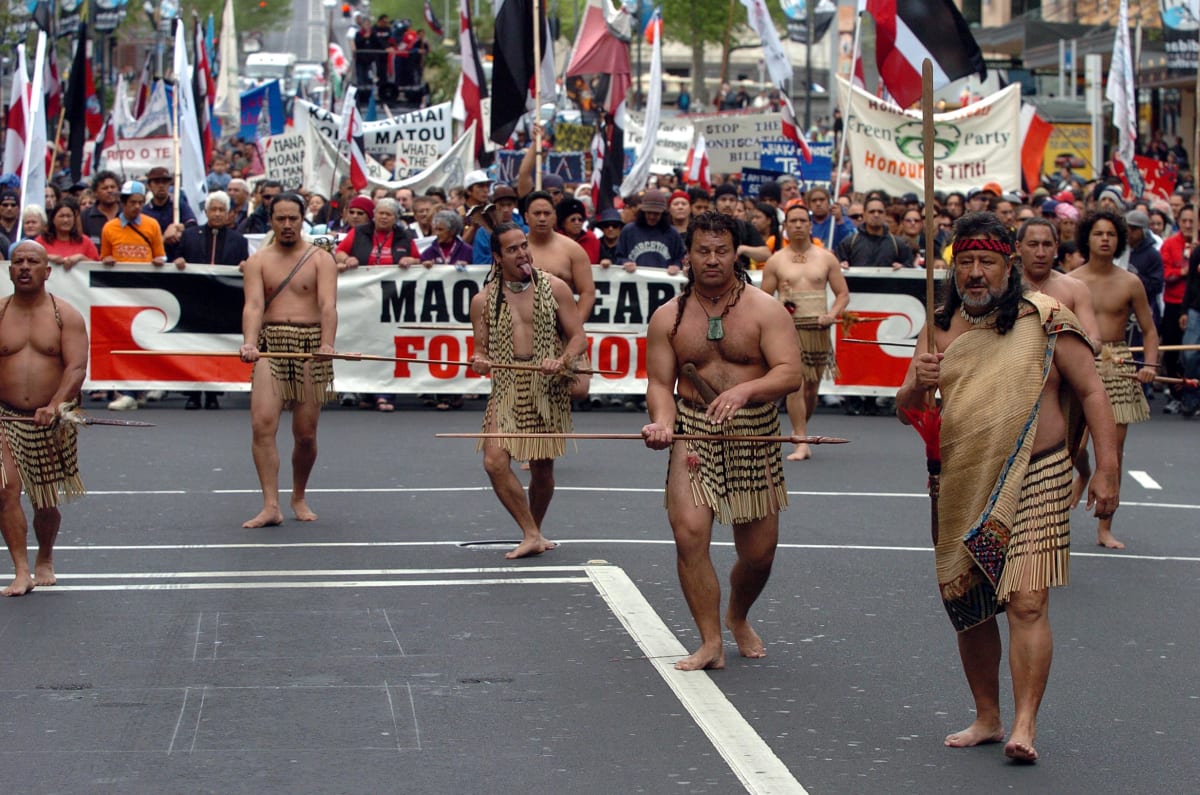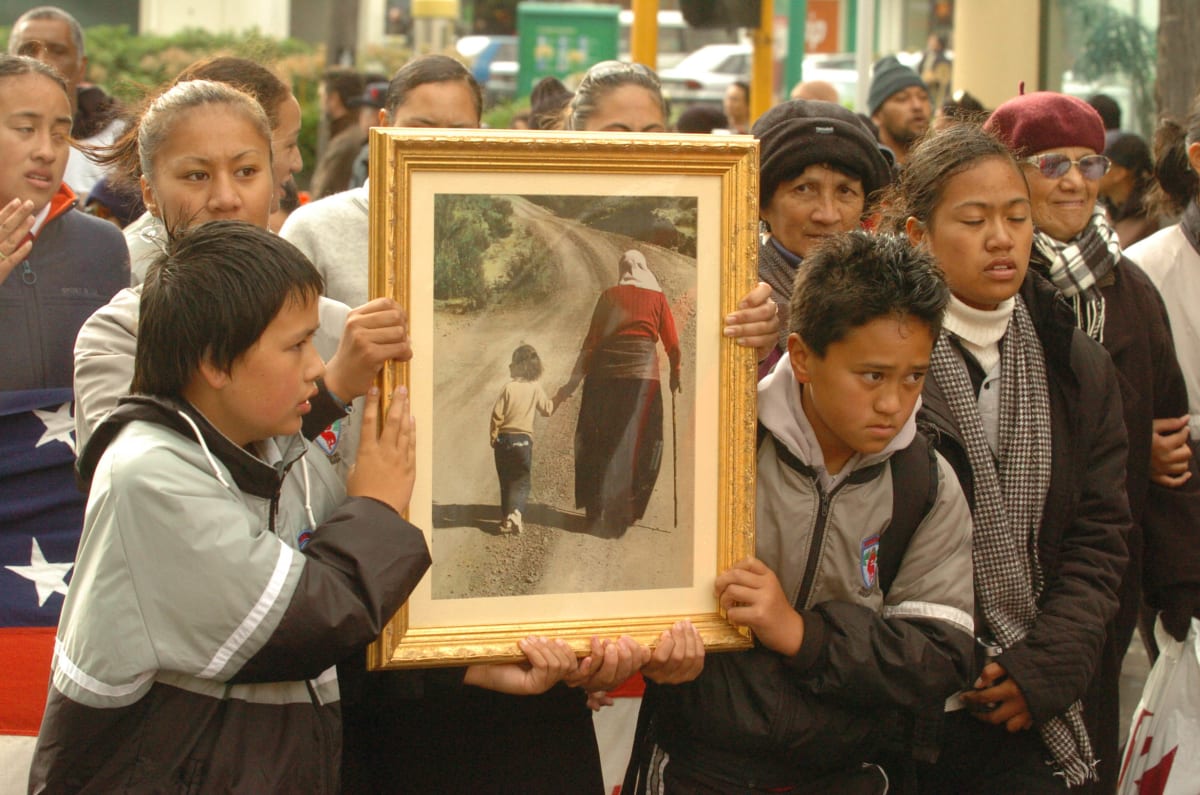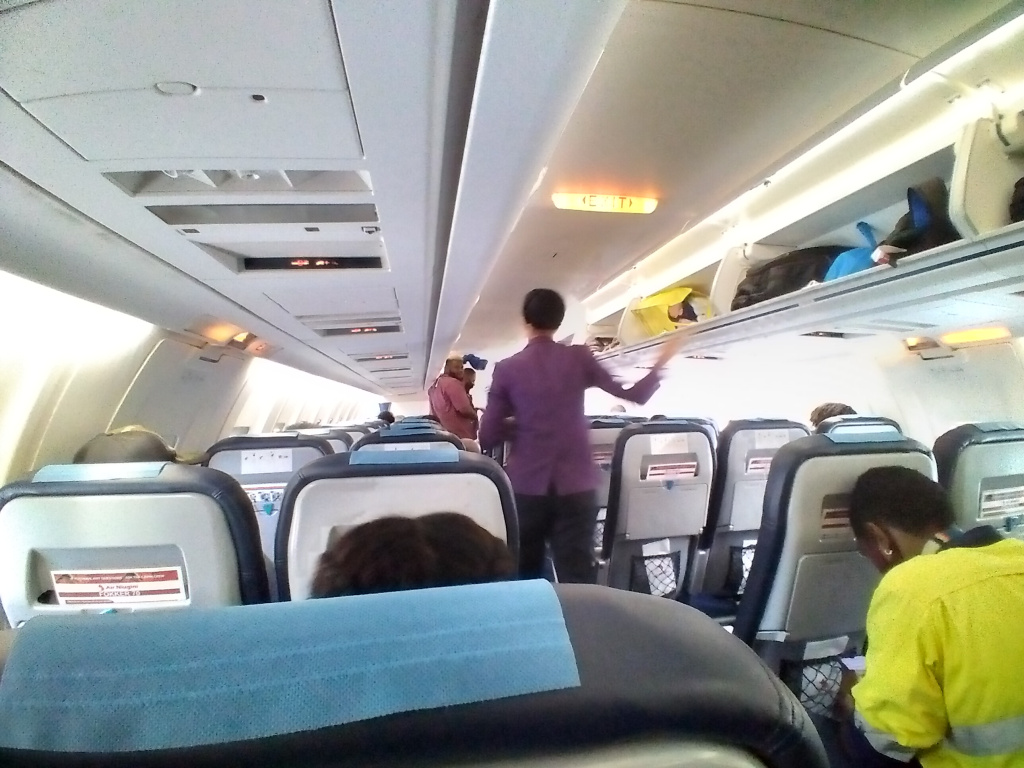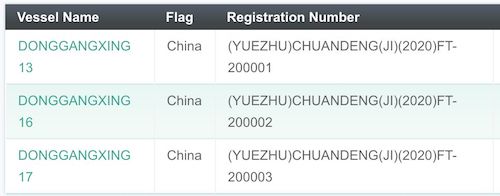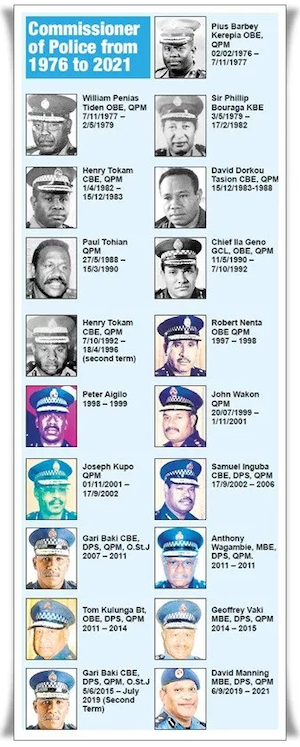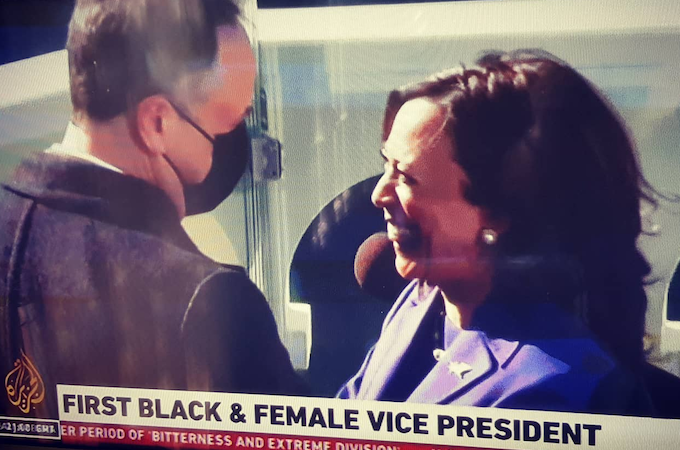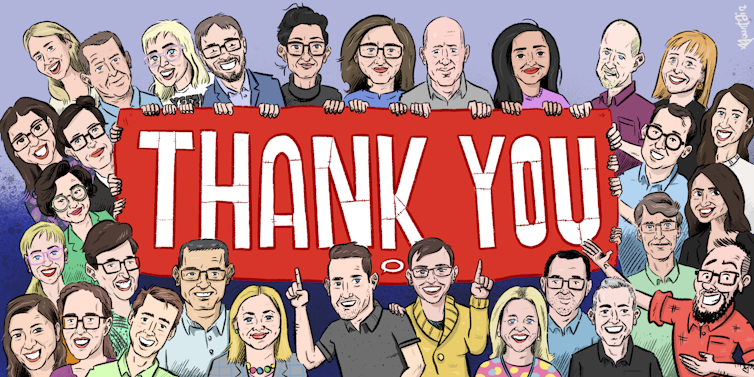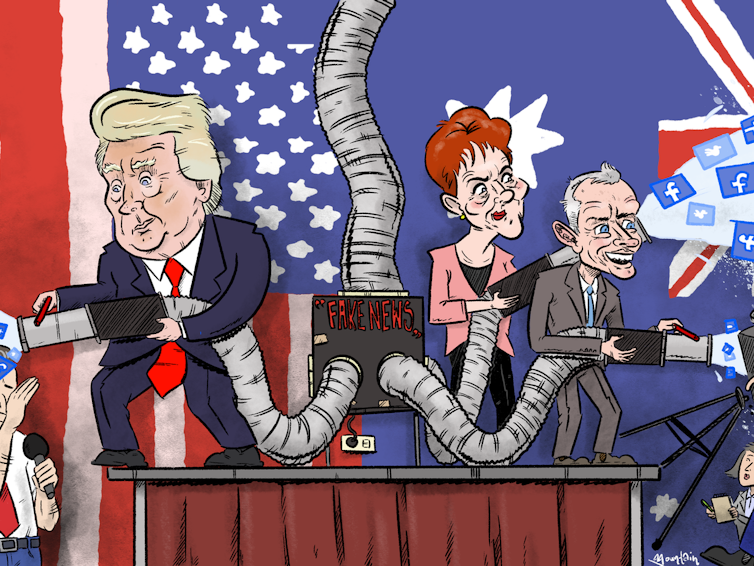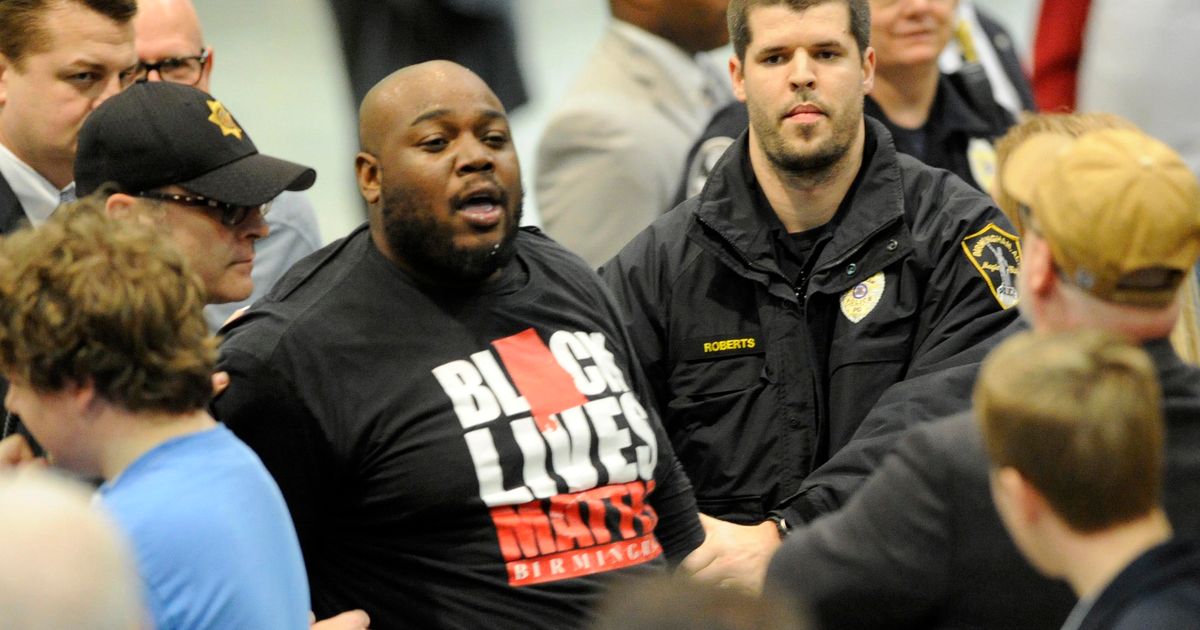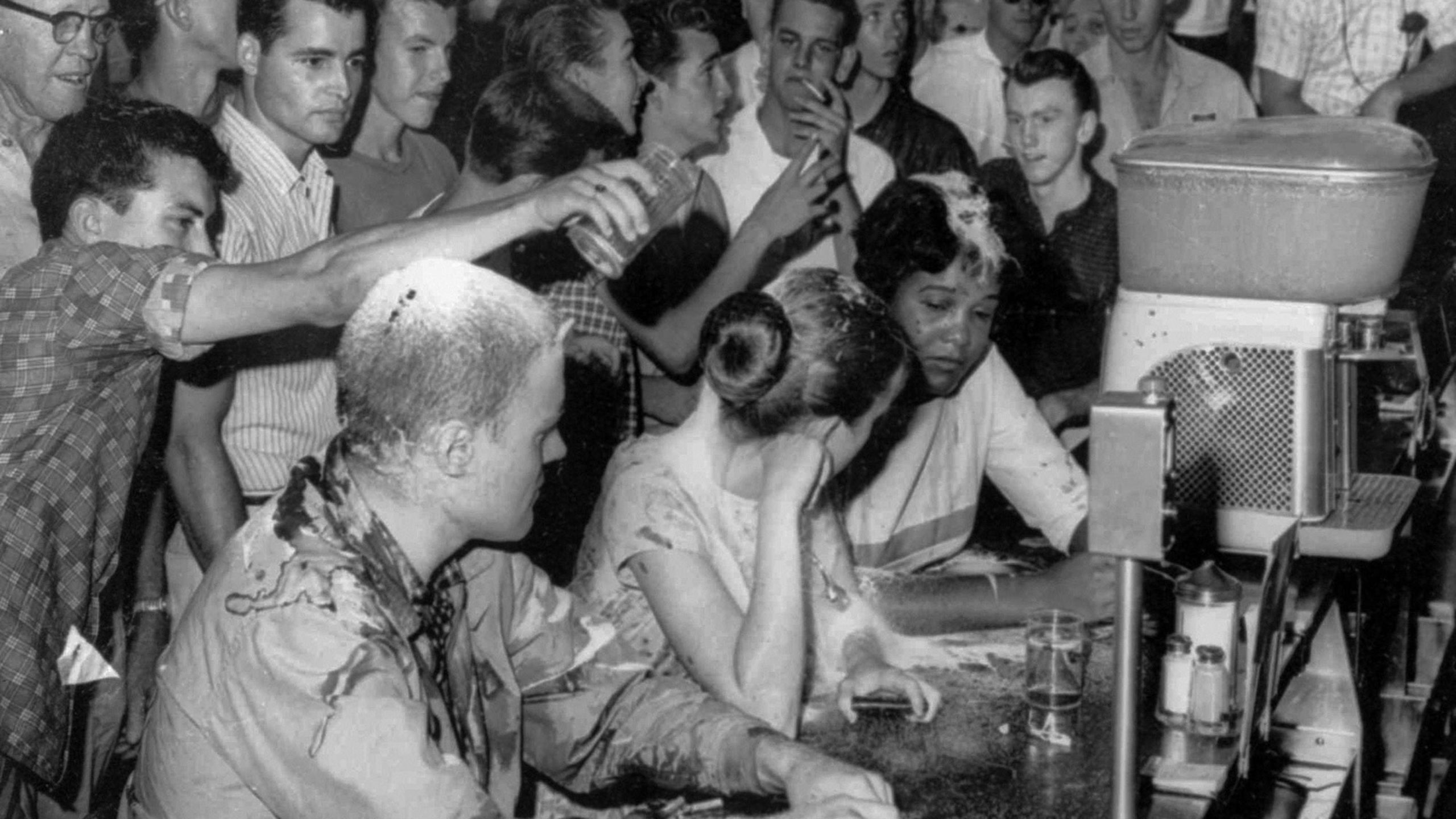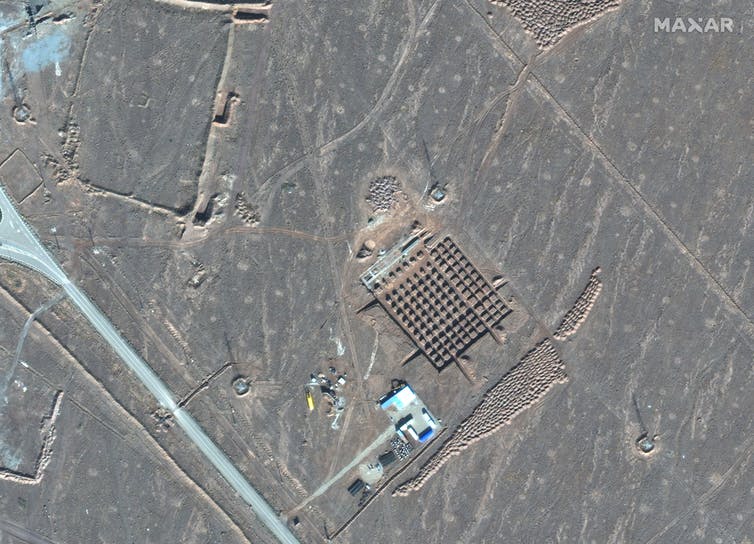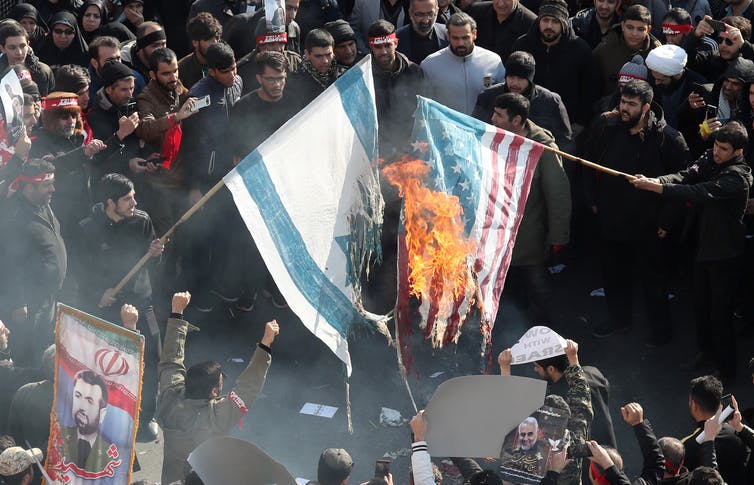Have you ever found yourself surrounded by masked rioters being chased by flag-waving patriots and thought, I’ve seen this movie before?
I woke up this morning dreaming that I was speaking at one of your rallies. I thought then, well, if I probably won’t be getting an invitation to speak at one of them, what would I say if I were to be asked to share some words?
Contrary to popular opinion in kindergarten, words are far more powerful than either sticks or stones, and I think this is something that most of us actually already know. Words can be used to divide and rule entire societies, it seems. We can have some people on some TV networks saying some sets of words, with other people on other networks using different vocabulary, and a different perspective, to talk about the same issues, and pretty soon we can achieve an endless series of tragic physical results from such words.
 So I especially like to avoid alarm-bell words that require lots of defining if you’re going to use them successfully, or else no one really knows what they mean. If I do use such a word, I’ll tend to define it clearly first, unless I’m writing for a very particular audience. I’m mostly talking about “ism” words such as as socialism, anarchism, communism, capitalism, fascism, nationalism, supremacism, racism, anti-racism, sexism, progressivism, conservatism, liberalism, elitism.
So I especially like to avoid alarm-bell words that require lots of defining if you’re going to use them successfully, or else no one really knows what they mean. If I do use such a word, I’ll tend to define it clearly first, unless I’m writing for a very particular audience. I’m mostly talking about “ism” words such as as socialism, anarchism, communism, capitalism, fascism, nationalism, supremacism, racism, anti-racism, sexism, progressivism, conservatism, liberalism, elitism.
Other words are important, or at least to some people they can be, so I’d want to first say that I’m so sorry Aaron Danielson was killed. Without getting into the details and not having been present, many of us were expecting something like this to happen. Whether the next person killed at a protest was going to be shot or run over was unknown, but that someone else would be killed was just a matter of time.
Many people, of course, avoided downtown that day, knowing there would be lots of armed people with different opinions all in the same place at the same time, shouting at each other and worse. Other people, perhaps people with stronger political convictions than most, can’t stay home. Such as many of the folks who I hope might be hearing these words right now.
There are a lot of people, from a wide variety of political orientations, who would think it pointless for me to even attempt to communicate with you. They think the divide is too great. They’re expecting all the predictions of civil war to come true. They think folks like you and I live in our insulated little echo chambers, in different worlds, and we couldn’t even communicate with each other if we tried. And then, going to protests, as you and I have done so often, any of us can bear out the fact that there is a whole lot more bear mace being sprayed in different directions than anything resembling communication going on. Looking at my YouTube channel, the comment section on certain songs largely consists of people exchanging death threats with each other.
But I think the folks who think we’re hopelessly polarized and have no grounds for communication are completely wrong. I think we live in the same world, and we face the same sorts of problems, and could benefit from the same sorts of solutions, too, and I think many of you already agree with this notion. That’s what I would really want to focus on, if I were speaking at one of your rallies.
I think about so many of the rallies when I’ve seen you guys around, and I don’t want to judge too much by appearances, but to me you look mostly like members of the working class. Some of you might be rich, I don’t know, but I’d be willing to bet that at least 99% of you aren’t. Many of you are military veterans, which is also true of no small number of those among the ranks of the groups you oppose.
Being members of the working class living in the Portland area, as so many of you are, and as I and most of my friends are, I’ll bet there are a whole lot of things we have in common.
I’ll bet half of us live in the same sorts of two-story, wooden, grey, Class C apartment complexes that you can see lining most of the major roads in most of the neighborhoods of both Portland and across the river in Vancouver. I’ll bet many of us have the same landlord, in the form of an investment group, such as Prime or Randall. I’ll bet our apartment complexes are managed by the same stingy management company, such as CTL. And I’ll bet your rent also doubled over the past ten years, and this development has caused you great consternation, made you angry, made you want to find solutions.
Oh, and did you happen to notice that during the time your rent doubled, Obama was in the White House? Hard not to notice coincidences like that.
And while your rent was doubling during the Obama years, maybe you, like me, were having kids, making a family, hoping to move into a bigger place, maybe to buy a house, only to see any such hopes dashed by the reality that the cost of buying a house or renting a bigger apartment was out of the question, if you didn’t have a six-figure income.
And during that decade, who was running the city you lived in, where the rents and the taxes kept going up and up, while your income did not? Democrats. I noticed that, too.
When you look around your neighborhood at all the construction sites here in the booming Pacific Northwest, and you see the workers, and when things break at your apartment complex and you see who comes to do repairs, and who maintains the grounds, did you notice that most of the people doing most of the work are immigrants? I noticed that, too.
And who are the people always advocating for the rights of immigrants, and for taking in more immigrants and refugees, while the cost of living keeps going up and jobs are as scarce as they are? Democrats, once again, as I know you have observed.
Have you ever wondered, if we had a lot less immigration in this country, what that might do to wages in the construction industry? They’d go up, right? That’s obvious, isn’t it? Same for other industries, too, right?
A lot of people look at all of this, they put two and two together, and they conclude that the policies of the Democratic Party are not very conducive to our survival. If they want to do things like welcome lots of immigration, export jobs with free trade deals, and govern cities in such a way that the rent doubles every ten years, maybe it’s very reasonable to conclude that the Democratic Party isn’t representing the interests of the general population. Did you reach that conclusion at some point along the line?
And then someone comes along who wants to deal with this mess, to do something on behalf of most people, drain the swamp, build the wall, stop the flood of immigrants taking so many of the jobs, end the endless wars and stop policing the world, get out of free trade deals, put up tariffs, and try to make moves to reverse the trend of everything going in the wrong direction all the time, and for supporting his evidently reasonable policies, you are called every bad name in the book.
But then, as you have been giving your support to this president, you may have also been noticing that many of the policies he’s been talking about are opposed not only by the Democrats, but, at least until very recently, by most of the Republican leadership as well. You may also have begun to notice that the man doesn’t necessarily support the things he says he supports, and he hasn’t drained the swamp at all. Am I right? Or did I just lose you there? I’m just guessing there are a lot of you who realize, on some level, along the line, that Trump is mostly just saying the things he thinks you want to hear, and then governing on behalf of big business, like very rich politicians have done in DC for a very long time.
Being a history buff, if I were speaking at one of your rallies I’d want to try to talk about what I see as some pretty clear historical parallels between now and a century ago. Trump seems new and unconventional in many ways, but this kind of societal divide between large groups of economically struggling Americans on different sides of issues like immigration goes way back.
Exactly one hundred years ago here in the Pacific Northwest and around the United States, as well as across Canada, conflict raged in the streets. Veterans of the First World War made up the ranks of many of the people involved on all sides of it. The cities were full of returning soldiers, many of whom were sick with the Spanish Flu. Disease was rampant, there was insufficient housing, and not enough jobs, either. At the same time, a massive influx of immigrants from war-torn Europe was coming, along with the returning soldiers from the war.
It was a situation designed for conflict, and conflict there was. On one side were people who viewed themselves as patriots, who wanted to control the dramatic impact that widespread immigration was having on the job and housing markets, and in society generally. On the other side was a labor union led largely by immigrants, who said everyone — the working class throughout the world, regardless of nation, race, gender or other such factors — should be organized into One Big Union.
This movement saw the First World War and immigration from Europe that was going on at the time as just two more ways the ruling class was trying to divide the working class, and have us fighting each other, whether on different sides of trenches in European wars, or in competition over low-paying jobs here in the US, in order to make sure those jobs keep on paying badly, and the owners make more profits. Instead of opposing immigration, they organized immigrants along with everyone else. They had learned that they had to make a choice between supporting their nation, in the sense of supporting the imperial goals of their governing elite, or supporting their class, and they chose the latter.
Today, there is no massive, ecumenical movement of the working class for us all to join. No such alternative like that currently exists. When it did exist, laws were passed, called the Alien and Sedition Acts, and a national police force was formed — called the FBI — in order to destroy the movement. Union halls across the country were burned to the ground, and union organizers of all races were lynched under bridges here in the Pacific Northwest.
But the kind of vision that formed this movement that was so targeted by the authorities back then has in the past been so powerful that it has brought down governments, it has forced the world’s biggest corporations to make massive concessions, it has reshaped entire societies for the better. It has also brought down upon it such terrible repression, it has been so targeted by the authorities and so alternately vilified and silenced by history, that even the very concept that the movement ever existed seems like a utopian fantasy, not like a practical reality that has shaped the world as we know it, perhaps more than any other force besides gravity.
I may be a geek, but if I had the chance to speak at one of your rallies, I’d want to talk about patterns. There is a pattern happening here, and these consistencies between Portland in 1920 and Portland in 2020 are not accidental. The dynamics of the conflicts in this society now are created by the same sorts of people who were creating them back then. In many cases, their direct descendants. These things tend to run in the family, as does inherited wealth.
Why does the political elite enact policies intended to create these conflicts, and why do they then make moves to exacerbate them? In the back of our minds, I think we all know the answer. If I were speaking at one of your rallies, and I asked this question, would anybody shout, “divide and conquer,” or am I being overly optimistic? Because it seems to me that as long as those who, for example, support increasing immigration and those who support decreasing immigration can be in conflict with each other over the scraps dropped from the table of the ruling class, the ruling elite wins.
The ruling class logic is so simple and effective on us, it’s hard to even see it’s there. Most Mexicans accept such low wages because they’re either undocumented and living in the shadows of the law, or they’re competing with people who are in that situation. And, as you know too well from personal experience, in all likelihood, the rest of us are competing with them, too. And unless we take the concept of exclusion to its logical conclusion and we really think laws and walls are going to keep out the hundreds of millions of people just on the other side of the southern border who also need to feed their children, or unless we believe genocide is the actual solution here, then all the people living in this country are going to have to have the opportunity to work, and if they’re going to work, they’re going to have to be paid, and if they’re going to be paid, then whatever they’re paid is what you’re going to get paid, too. So if you want to be paid well, and to live in an affordable place, you have to stand up for everyone else’s rights to a living wage and decent housing. That’s what these conflicts in other societies have taught us. The ruling elite here learned those lessons from history, too, which is why they divide and rule the way they do.
I’m a musician, by profession, and before the pandemic I used to tour a lot. Ireland is one of the places where I have the most fans. There are reasons for this, both political and cultural, but I’ll save that discussion for another time. Point is, I have a fairly deep familiarity with some other countries where I have spent a lot of my time over the decades, working. In a part of Ireland called Northern Ireland, which is more a political term than a geographical one, the population is fairly evenly divided between Catholics and Protestants. The Catholics there have long lived as second-class citizens, and what has come to be known as the Troubles, which resulted in thousands of people being killed in Northern Ireland from the 1970’s to the 1990’s, was largely about Catholics having equality with Protestants.
So, you can see if you look at it that there is this, even now, a simmering conflict going on between two groups of people in this very conflicted part of the world that we call Northern Ireland. If you’re part of the society, you will likely have developed ideas about the folks who live on the other side of the wall — those Protestants only care about other Protestants, or those Catholics are criminally inclined, etc. — and you likely will have developed a sort of bipolar, Catholic/Protestant view of the world, as a sort of default, whether you feel passionately about it or not.
But if you back up and look at it from the outside — even if you just go work in England for a few years, like so many Irish do, from both sides of the sectarian divide — what you’ll see looking back at Northern Ireland are two groups of people we call Catholics and Protestants, one group of which is generally a little better-off than the other, but what you’ll notice most of all is that the majority of both Irish Catholics and Irish Protestants are poor by European standards. I heard one speaker at a union rally in Derry note that the Catholic community in Northern Ireland has the fifth worst quality of housing in Europe, while the Protestants have the sixth worst housing standards.
Back to the US. Contrary to the rhetoric, our ruling elite consists of millionaire Democrats as well as millionaire Republicans. The Congress consists almost entirely of millionaires, the Democrats being slightly richer than their Republican counterparts. And history shows us in abundance that different elements of the two groups of millionaires are always vying, over the years, decades, and centuries, to convince us all that they represent us, or different elements of us, the people of this country. What they’re doing in their efforts to appeal to different segments of society, in effect, is practicing divide and rule politics. Who they’re trying to divide from whom doesn’t even vary that much over the years, though the dynamics evolve somewhat.
What I’d most want to get across, if I were ever to have access to your attention, is that the reason they need to divide us is because they can’t afford to have us be united. And the reason they can’t afford to see us united is because they don’t rule on our behalf, they rule on behalf of the 1%. Neither party represents us, the working class majority, of whatever color or gender. And Trump doesn’t, either, no matter how much he may succeed in painting himself as an outsider or a rebel of some kind.
What the elite from both ruling parties want is division. What they want is for us to shout at each other and shoot each other. They will try in so many different ways to make that happen. They — and their friends who run the major social media platforms, with their conflict algorithms, and their friends in the corporate media, whether CNN or Fox — will do their best to reduce the debate to some people calling others fascists who love racism, while others are called communists who hate freedom, or anarchists who love chaos and arson.
What they fear most, I would conclude, is a united working class. Or, to put it another way, a working class that is aware of its own existence. Or, to put it another way, class solidarity, and especially international class solidarity. What they love most are pawns.
This post was originally published on Radio Free.
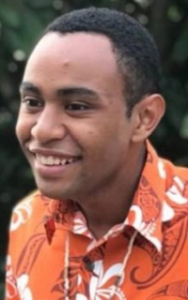 Andrew Kuliniasi … “The story is a contemporary PNG tragedy.” Image: My Land, My Country
Andrew Kuliniasi … “The story is a contemporary PNG tragedy.” Image: My Land, My Country
